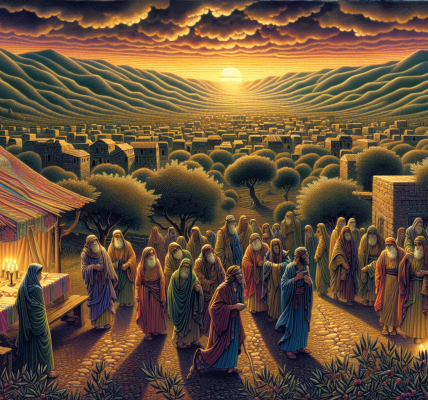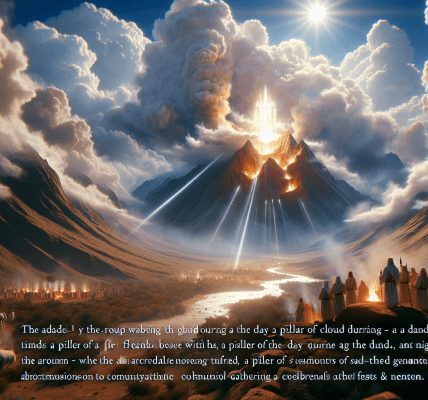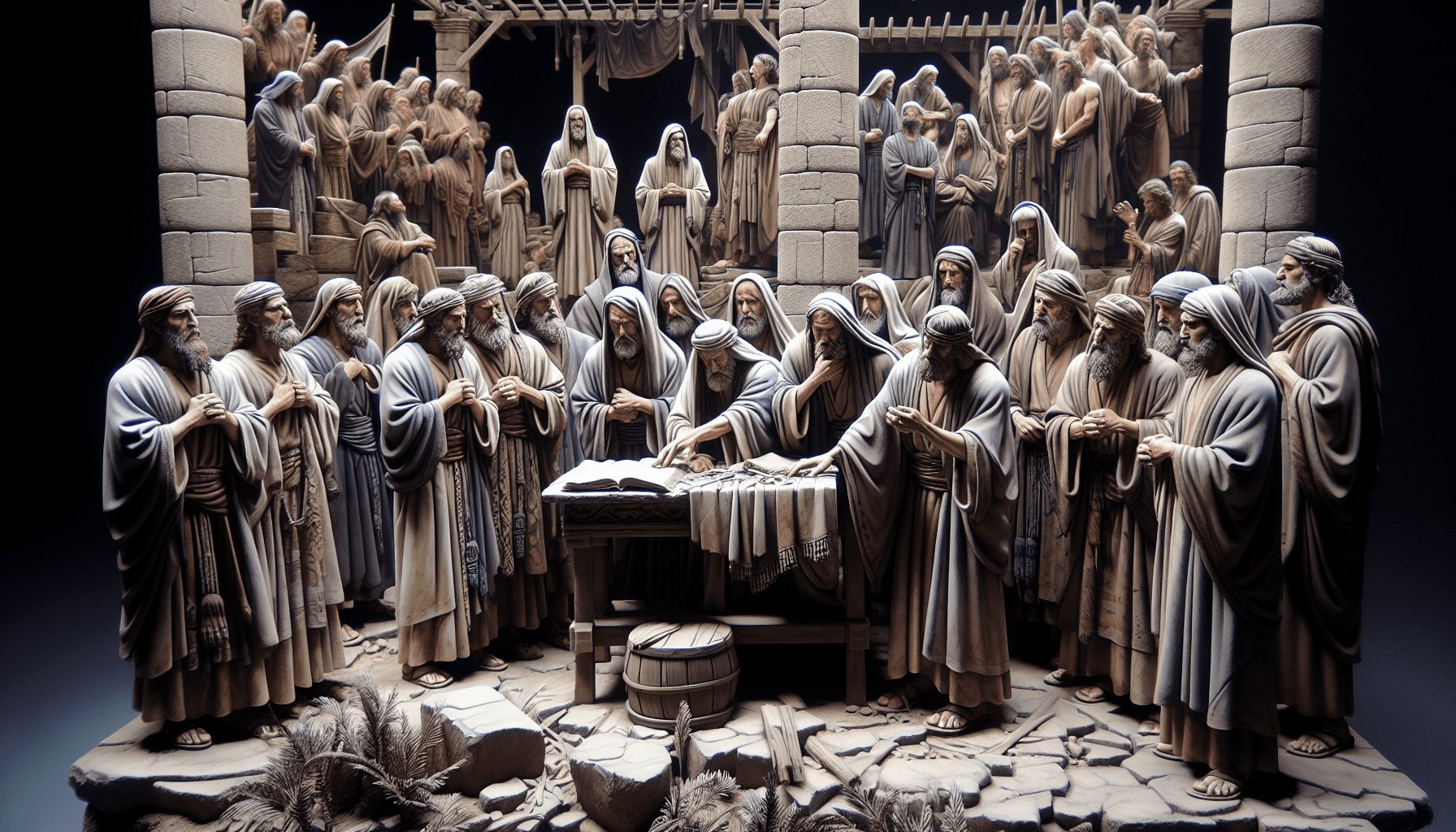**The Boldness of Peter and John**
The sun hung low over Jerusalem, casting long shadows across the narrow streets as the city buzzed with the aftermath of the Feast of Pentecost. The air was thick with murmurs—some of awe, others of skepticism—about the miraculous healing of the lame man at the Beautiful Gate. The man, who had begged for alms for decades, now walked and leaped, praising God in the temple courts. But not everyone rejoiced.
Among those troubled by this event were the religious leaders—the priests, the captain of the temple guard, and the Sadducees. These men, proud in their authority, saw the commotion not as a divine work but as a threat to their order. The name of Jesus, the crucified Nazarene, was on the lips of the people, and this they could not abide.
With a swift command, temple guards seized Peter and John, the two Galilean fishermen who had spoken boldly in Solomon’s Colonnade. The apostles were dragged before the high priestly family—Annas, Caiaphas, and the other ruling elders. The chamber where they stood was grand, lined with polished stone and adorned with rich tapestries, a stark contrast to the simple lives of the men on trial.
The high priest fixed them with a piercing gaze. **”By what power or what name did you do this?”** he demanded, his voice laced with authority.
Peter, filled with the Holy Spirit, stood unshaken. His weathered face, once marked by fear when he denied his Lord, now radiated a fearless conviction. **”Rulers and elders of the people,”** he began, his voice steady, **”if we are being called to account today for an act of kindness shown to a man who was lame and are being asked how he was healed, then know this: It is by the name of Jesus Christ of Nazareth, whom you crucified but whom God raised from the dead, that this man stands before you healed.”**
A murmur rippled through the assembly. Peter’s words struck deep, for he spoke not as an uneducated fisherman but as a man anointed by the Spirit. He continued, **”He is ‘the stone you builders rejected, which has become the cornerstone.’ Salvation is found in no one else, for there is no other name under heaven given to mankind by which we must be saved.”**
The council exchanged uneasy glances. The boldness of these men was undeniable, and the healed beggar stood beside them—living proof of their claim. They could not deny the miracle, yet they could not accept its source.
After a hushed deliberation, the rulers ordered Peter and John out of the chamber. **”What should we do with these men?”** one muttered. **”Everyone in Jerusalem knows they have performed a notable sign, and we cannot deny it. But to stop this teaching from spreading further, we must warn them.”**
When the apostles were brought back in, the high priest issued his command. **”We strictly order you not to teach anymore in this name,”** he declared. **”Do not speak or teach at all in the name of Jesus.”**
Peter and John did not flinch. **”Which is right in God’s eyes: to listen to you, or to Him?”** Peter replied. **”We cannot help speaking about what we have seen and heard.”**
The council, though furious, could find no grounds to punish them further. The people were praising God for what had happened, and any harsh action might stir unrest. With reluctant threats, they released the two men.
As Peter and John stepped out into the golden light of the setting sun, they returned to their fellow believers, eager to share all that had happened. The believers listened, then lifted their voices together in prayer, not for protection, but for boldness. **”Sovereign Lord,”** they prayed, **”enable your servants to speak your word with great boldness. Stretch out your hand to heal and perform signs and wonders through the name of your holy servant Jesus.”**
The place where they prayed shook, and they were all filled anew with the Holy Spirit. And so, with unshakable courage, they continued to proclaim the word of God, and great grace was upon them all.
**The Believers Share All They Have**
Among them, no one claimed any possession as their own. Those who owned lands or houses sold them, laying the proceeds at the apostles’ feet, and the money was distributed to any who had need.
One man in particular, Joseph—a Levite from Cyprus, whom the apostles called Barnabas (meaning “Son of Encouragement”)—sold a field he owned and brought the money to the apostles. His generosity was a shining example of the unity and love that marked the early church.
And so, in the face of opposition, the believers stood firm, bound together in faith, their hearts and hands open, their voices unyielding in declaring the name of Jesus. The rulers of Jerusalem had issued their threats, but the disciples of the risen Christ would not be silenced. For they knew—the message of salvation was not theirs to withhold.




